|
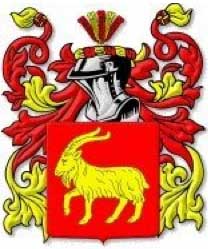
BEFORE THE INVASION OF POLAND
782142 LAC Czeslaw Kowalczyk was born on 13/7/18 in Sławków , Olkusz, Kielce, southern Poland.
The following has been kindly donated by the Kowalczyk family.
The Kowalczyks – father Wincenty, mother Aniela nee Molenda, children Maria & Genowefa (Gienia), Czeslaw & Waclaw - moved east when the railway company that employed Wincenty offered land along the railway to employees willing to move to Ukrainian dominated eastern limits of Poland. We do not know when they moved east.
There, the Kowalczyks (minus Gienia, who had moved to Gdansk) all lived on a smallholding in the then very small frontier settlement of Kiwerce. The smallholding was big enough to accommodate up to 4 units for individual family members. Wincenty & Aniela built a house for themselves, and Maria did likewise. In time, homes were to be built for both Gienia & Czeslaw.
From 1935, Czeslaw gained his qualifications in engineering at colleges in Zdolbunov & Warsaw. He completed his national service with 6 Polish Air Force Regiment of Lwow at Swiece, and was called to Lwow in July 1939.
When the Russians invaded in 1939/1940 the Kowalczyks were forced to give up their home and move to Malbork.
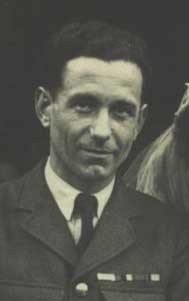
How Czeslaw Escaped When Life And Country Were Turned Upside-Down By The Invasion Of Poland By Nazi Germany In 1939
"In the year 1935 I finished at the School of Zdolbunow. (A College Of Mechanical Engineering in what was then Poland, and what is now Ukraine) I was employed at Deblin (a Polish Air Force base south of Warsaw) after an L.S.T.W.T. course (Technical Engineering) in Warsaw that finished in 1936.
On 1st July 1938 I was called to serve in the Army. I served my time as a recruit at Swiecie (east of Warsaw).
From 1st May till 16 July 1939 I was home on leave at Luck (Lutsk – now of north-west Ukraine).
When my leave came to an end I was called to the Air Force station at the city of Lwow (Now part of north-west Ukraine).
On 1St September the War started, and the station was subjected to heavy bombing.
On 7th September there was a second bombing after which the station was ruined. In the evening we marched to Zimna Woda (15km west of Lwow).
9th September was a terrible day. We had returned to the station early in the morning. At 5am the first round of bombing began. A short time after (7am) there was a second round of bombing that lasted until late evening. Bombs were exploding all around. Many aircraft and buildings were destroyed. With friends Sergeant Michalak, Szmit & Warbownik I scrambled behind a hangar and hid. I was lucky to escape alive.
On 10th September I was at the station in the morning gathering things to take with us, and when night time fell we marched from the ruined station in the direction of the town’s cinema. Before dinner we had reached a place called Busk (east of Lwow) when German planes appeared again.
On 13th September we arrived at beautiful Sniatyn (heading south-easterly now, in what is now part of Ukraine. We were heading for the Romanian border) - a place by the river Czeremosz – where we had a swim.
On the morning of 17th September the enemy’s planes bombed Sniatyn’s railway station. Later we saw Russian planes in the sky for the first time. On the same day we left Sniatyn for the Romanian border which we crossed on 18th September. We gave up our weapons and transport at Radolcze. (Radauti, Romania) There was a tribunal, and we were given the status of interned Polish Forces in a friendly-at–the-time Romania. We spent the first night sleeping on bare floorboards.
On the morning of 19th September we were put in comfortable passenger wagons and were transported to Turdy (Turda is south west of Radauti, lying in the north-west of central Romania).
In the afternoon of 23rd September we had to march 12 km to find living quarters. My friends and I – Olek, Rola, Buszel, Smit & Ziomek found a large house. The owner was Bulgarian. We cooked our own meals, and felt comfortable and happy in the hope that we were a little nearer to our goal.
To avoid catching dysentery we ate lots of garlic with onions, cabbage and bread, and drank home-produced vodka.
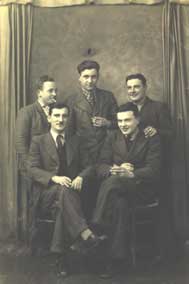
On 7th October we moved to living quarters in a Rumanian woman’s home in Corugea. (Czes had travelled through most of Romania now, and was situated north-west of Constanta) She was a very friendly lady, and her name was Aneta Smedu. Our living conditions were better and we had a reasonable Christmas there, but it was our first away from home! I fried pancakes, Zygmund Smolnicki cooked pierogi, and we drank wine, cognac, liquor and spirit, and sang carols.
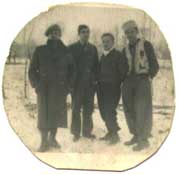
On 16th January 1940 although life was good, we were not happy because we knew we were at war and needed to fight. We decided to travel to Constanta, where we hoped to catch a ship or boat. We met up with many Poles with the same in mind.
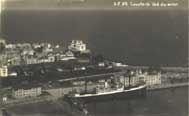
We paid 8,600 lej for passage and on 25th January we sailed to Istanbul in Turkey.
The next day, we sailed to Piraeus. (Greece) The journey took 4 hours. An earthquake shook the area after we left the port.
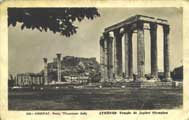
We stopped at Haifa, Palestine (now Israel).
On 30th January 1940 we arrived at the port of Beirut, Syria. For the next two weeks we had to be patient, but were able to explore a few historic places in this Arabic region, and enjoy some sunshine, sands and food.
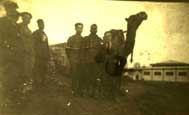
(One of Czes’ travellers was Antoni (Tony) Parylak. Czes said that Tony saved his life when they were making their way from Poland to Britain by buying him a bottle of rum after Czes had eaten a pear the skin of which had clung to the lining of his stomach. It was around this stage of the journey that this happened.)
On 15th February we left Beirut for the port of Alexandria, Egypt.
On 17th February we left Alexandria. The journey from Egypt to Marseilles was a dangerous one through exposure to high seas and a thunderstorm.
On 22nd February we arrived in Europe through the port of Marseilles. We were very happy. We had survived the journey and were much closer to being able to take the fight to our common enemy.
Edek, Ziomek, Felek & I celebrated our luck in a wine bar on 23rd February.
We moved inland from the sheltered harbour of Cassis on 24th February. On 25th February our journey across France took us through the Septfonds Internment Camp, which was a terrible sight.
We continued to travel westwards through France, and we departed from Caussade (nr Montauban) on 12th March on the last leg of our journey to Bordeaux.
There was a memorial service on 15th March.
We were given French Air Force uniforms and equipment on 16th March.
On 8th April I took practical examinations to enable me to work in a munitions factory, and I started work at the factory on 17th April.
On 18th June Bordeaux suffered heavy night-time bombardment.
We left Bordeaux and aimed to retrace our journey back towards the south-east coast of France, to pass through Toulouse to end up at Port-Vendres, close to the Spanish border. (It is unclear how far they travelled along this route, but, given time constraints, it is unlikely to have been the whole way) only to have to make our way back one final time to the south-west coast of France on 20th June. It was a hazardous journey.
(On 21st June Czes travelled through Lourdes, half-way to Toulouse.)
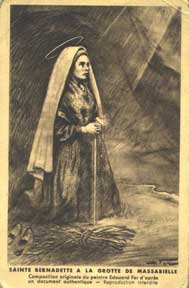
On 24th June at the port of Bayonne we were lucky to find passage to an unknown destination on the English ship The Andorra Star. Our destination turned out to be the port of Liverpool. (The Andorra Star was sunk on 1st July 1940 by a single torpedo on its very next journey.)

When we arrived, people greeted us with thumbs up. We were puzzled, as we had no idea what this meant. We then travelled on the 10.15 train to Breston Castle (possibly Houghton Tower near Preston – Hence ‘Preston Castle’?, which LOOKS like a castle?) in the comfort of passenger carriages, arriving at 14.30. We marched south through pleasant countryside. We had time to take rests, and we slept under canvas.
On 1st July we moved to Kirkham Weeton, near Blackpool (Army Transit Camp).
On 13th July I passed a theoretical examination.
On 14th July I wrote a letter to a friend in the hope of hearing news about Wacek (‘Wacek’ is a name that Czes used to refer to his brother, Waclaw.)
(On 5th August Czes was posted to the Polish Air Force Depot at Blackpool.)
On 19th August I travelled from Weeton to Blackpool (The purpose & duration of this trip are unclear).
On 20th August I was issued with my own English uniform.
On 24th August I was transferred from R. A. F. Weeton to Bramcote. (to No. 304 Polish Bomber Squadron, R.A.F Bramcote.)
On 27th August I was transferred from Bramcote to R. A. F. Hucknall. (to No. 18 Operational Training Unit, R.A.F Station Hucknall.)
(On 14th November 1940 Czes was posted to No. 18 Operational Training Unit, R.A.F Station Bramcote.)
(On 1st January 1941 Czes was posted to No. 1 Polish Training School R.A.F Station Hucknall.
On 15 February 1941 I was posted to R. A. F. Cranwell.
On 8th March 1941 I was returned to R. A. F. Hucknall.”
On 21st December 1944 Czes was posted to No. 16 Secondary Polish Flying Training School, R.A.F Station Newton.
On 18th December 1946 Czes was posted to No. 3 Polish Holding Unit, R.A.F Station Hucknall.
On 5th March 1947 Czes was posted to No. 16 Personnel Reception Unit, R.A.F Station Hucknall. Due to a gradual demobilisation of the Polish Forces under British command, Czes was enlisted in the Polish Resettlement Corps/R.A.F (P.R.C/R.A.F) on 3rd March 1947 – served in the United Kingdom until he was finally discharged on 26th April 1948 on completion of his two-year contract with the P.R.C/R.A.F.
The war-time friends he made during this unforgettable time remained very special, life-long friends – Stanislaw (Stan) Bochenski, Jan (John) Majerowicz, Antoni (Tony) Parylak & Rudolph (Rudek) Pilocik.
Czes became a motor mechanic, married & lived in Kimberley before moving to Mansfield where his 3 children grew up. He was a car mechanic and later became a workshop technician and instructor at a Technical College. He was a ‘larger than life’ character who would go out of his way to help people. He remained loyal and devoted to the friends he made – and there were a lot of them. He was a creative spirit, a prolific gardener and legendary bridge player! Tales are still told to this day of the twinkle in his eye, the dryness of his wit and the sharpness of his game.
Sadly, he died in 1996. He is remembered as a gentleman, with great fondness.
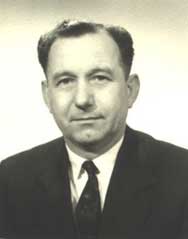
|